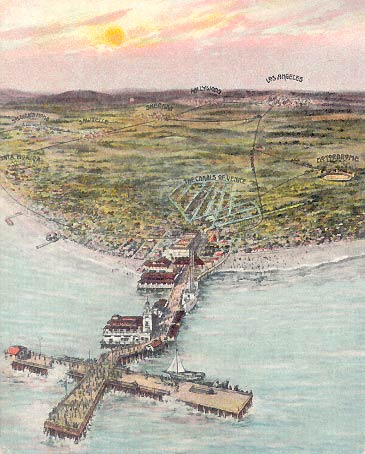
A Visit to Old Los
Angeles and
Environs
18. Hollywood and Venice.
by
Brent
C. Dickerson
Copyright © Brent C. Dickerson
Index to Episodes (click here).
A visit to Echo Park, Hollywood, Santa Monica,
and Venice.
• At the breakfast table the
next morning, Papa's voice boomed out. "Folk," said he, "our time in Los
Angeles grows short. We must shake a leg to take in what we can before we
move on!". "Papa," sighed Minnie, "I must admit that my leg has been
shaking for the past several days." "And not just your leg," said young
Frederick Johan, quietly. And so it was that the lot of us set out early
to see the sights to the west of downtown, all the way to the ocean. The
accompanying postcard illustration—which young Frederick Johan
called a "fish-eyed bird's eye view"—shows our route. As the
writing isn't very clear, dear, let me review it for you. Way at the back
is Los Angeles, and perhaps if you look very, very closely, you can see
Aunt Sigrid waving from near downtown; to the left, and a little lower, is
a place called "Hollywood"; lower and to the left again is a community
called "Sherman," with which we are not concerned; again lower and to the
left is "Sawtelle," and off to the left from Sawtelle is the Soldier's
Home, which we'll visit; below that, you'll see "Anta Monica," which means
"Santa Monica"; lower and to the right, with the lettering almost
indistinguishable, is "Ocean Park," which we'll get to later; then the big
pier in the foreground which seems to be nearly as large as a major
continent is the Venice Pier.

• On our way to our mid-day destination, a quiet local community called Hollywood—Chester's mother had thought we'd be interested in at least going past an artist's house there. We had a early start; the sky was just coloring as we paid a flying visit to Echo Park, where we had a quick snack which Aunt Sigrid had packed for us. Other early-risers were showing up at the park as well.
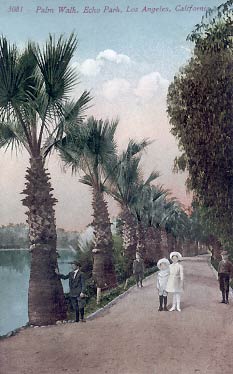
• "Some of us," remarked Minnie, "are becoming quite the experts on the local park system." "And what have you become an expert on in the last few days, Minnie?" I asked, innocently. Papa sighed, while Mother worried a button on her dress.
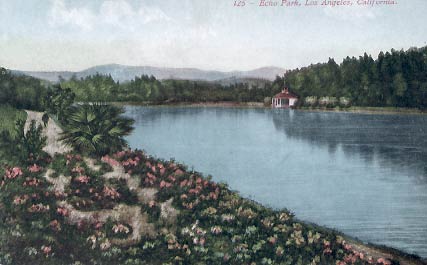
• As we left, the day began to brighten through the morning mists. Row-boaters began to splash their oars in the lake.
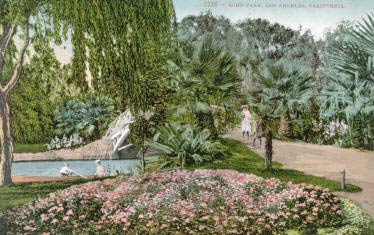
• We passed the Harvard Military Academy, where the boys were drilling. Papa stopped the car, pointed and said, "Maybe young Frederick Johan would like to join up?". "I think Charley would make a much better military man than I," quoth FJ, as Charley knit his brow and said, "You think I'd do well?". "Rise straight up through the ranks," said Papa; "—lieutenant, captain..." Minnie sniffed and said, "I've always said his merits were rather general." "'Caviar to the general,' as Shakespeare might say," I mused. Anna got a puzzled look on her face, and asked, "What would Shakespeare know about military food?", as Mother poked Papa and urged him to "drive on now, please."
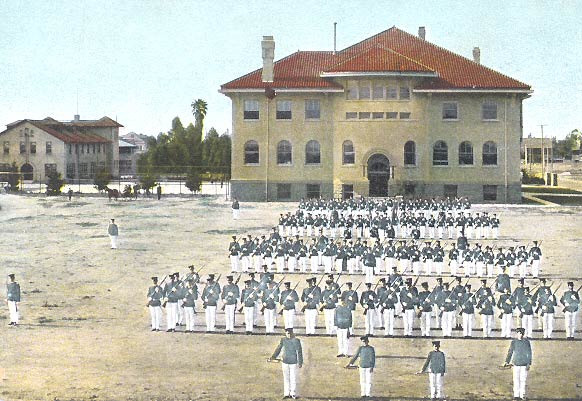
• Many of the older homes, even the less pretentious ones, had an air of easygoing charm which really worked a sort of magic on me. As we passed this one, I—in a reverie—muttered "just for us, dear...". Charley turned and gave me a curious look.
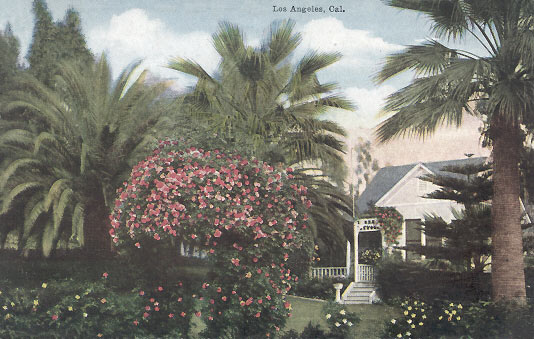
• And a school would be nearby, dear. I said this to myself, but Charley was still giving me a curious look. This particular institution was the Grant School, at 1530 Lemona Street.
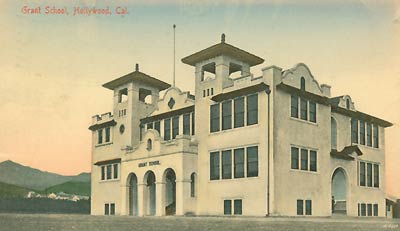
• Hollywood seems to be attracting artists, theatrical people, and such, probably—at least for the painters—because it has a nice view over the land to the south. "Such," declared Charley, "are the desiderata of artists." "Those who can take time out from starving in attics, that is," added Minnie from the depths of a very large hat.
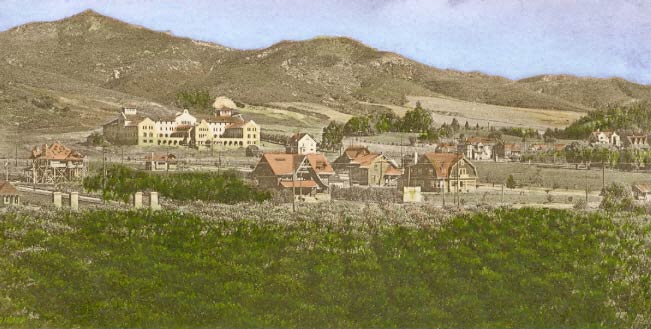
• Mother said, "The folks here do tend to be a bit stand-offish, it seems to me." "It's about 'charisma'," quoth I; "we don't have it." "I think maybe they are trying to decide if we are a troupe of actors," was Papa's view of the matter. "Show them some leg, Minnie," said Anna, blushing. Mother frowned; "Sit back down, Minnie." Charley—trying to keep a straight face—said, "The legs they'd want to see are in our picnic basket."
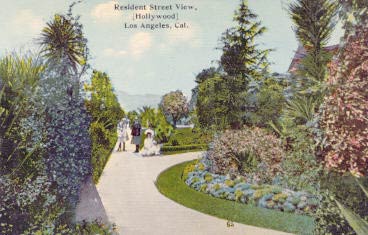
• Californians love flowers!—as we had seen everywhere, but nowhere more so than in the area of Hollywood.
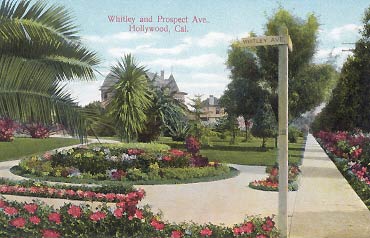
• As we admired a shady arbor from our buggy ("More like a glorified hay-wagon," was Mother's observation), the ladies of the house happened to come out and invited us to refresh ourselves and set a spell with them. Our ladies did exactly that; but we men-folk excused ourselves "to look after the horses"—that is, we stood on the far side of the horses from the ladies, and quizzed Charley minutely on the events at home the last few days. A stony look came over his face, and his much-rehearsed fixed smile froze on his lips. "Minnie and I have been learning Bible verses with Mother. 'Uplifted' doesn't begin to tell you how I feel."
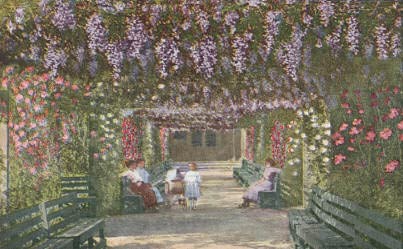
• The main street, rather grandiosely named "Hollywood Boulevard," is itself full of flowers like a country lane.
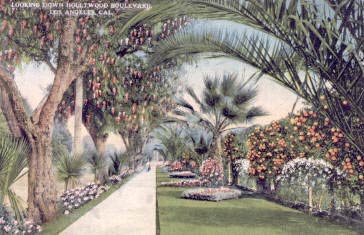
• "Quite some attic, I'd say,"
remarked Papa, as we pulled up in front of the artist's place. "I wonder
how often he starves there," pondered young Frederick
Johan.
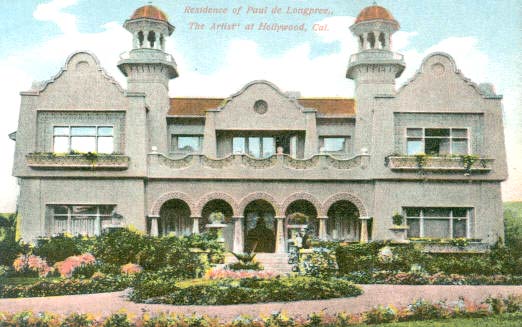
• Charley informed us that Mr. de Longpre was a flower-painter. Anna said, "I should spend so much time looking at the flowers here that I'd have no time left to paint them."
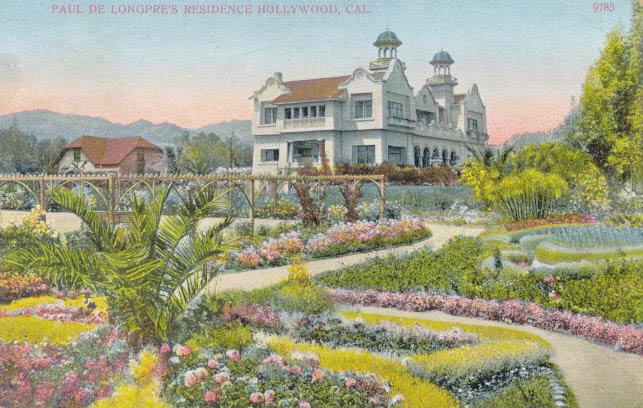
• Young Frederick Johan obliged Anna to step in amongst the flowers so he could take a photograph. "You will be Mr. de Longpre's next masterpiece!" said Papa as she stood framed by a thousand blossoms. Mother and Minnie seemed to be biting their respective tongues.
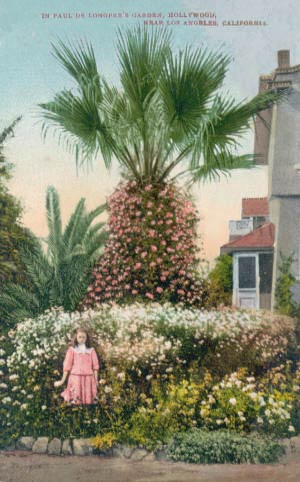
• As we left, we saw a man and little girl in the rose garden. "That," said Charley, "is Mr. de Longpre himself, I believe." Papa said, "He looks very well-fed to me."
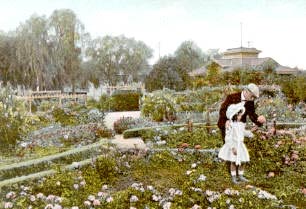
• A few blocks away, on Selma Avenue, was the Fremont School. "Education," said Mother, "is a wonderful thing. It keeps the children busy, and wears out their curiosity so that when they finally do come home, they attend to things and don't gad about." Papa looked at young FJ. "This young man needs more education, I think."
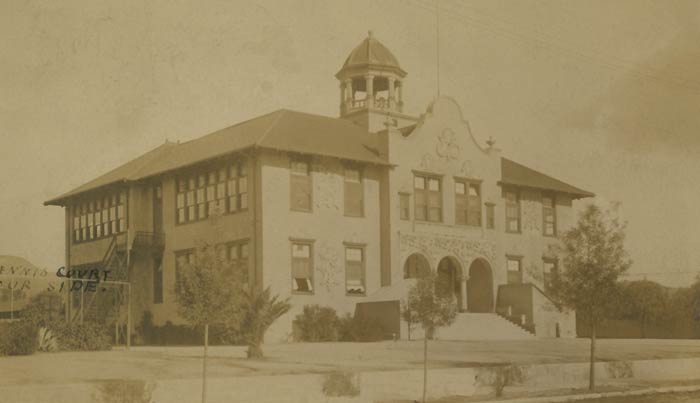
• Before we had gone more than a few yards, Papa said, "Well, folk—where shall we stop for our picnic?". Suspiciously quickly, young Frederick Johan exclaimed, "I know a place!". We all turned and looked at him. "Chester gave me the directions."
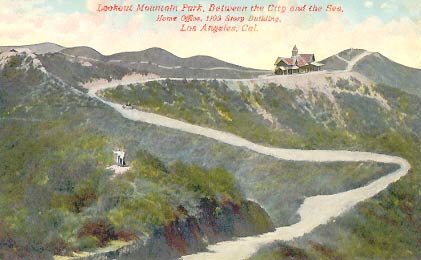
• And so it was that, after a harrowing journey through ravines and past cliffs, we ate lunch atop Lookout Mountain overlooking Hollywood; and probably Japan was visible on a clear day. On the way down, Mother was afraid someone in one of those automobiles might run us off the road rounding a curve; but I said that the baby's crying was better than any horn. Charley said that the very mention of a baby always made him proceed with caution. And we all turned and looked at him.
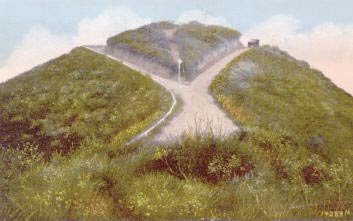
• At one point, Minnie sighed, "I must say that thoughts of 'strait is the road,' and things that 'leadeth to destruction,' have flitted through my mind once or twice today."
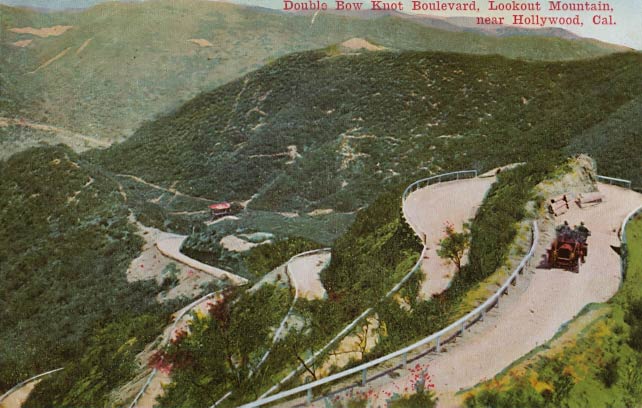
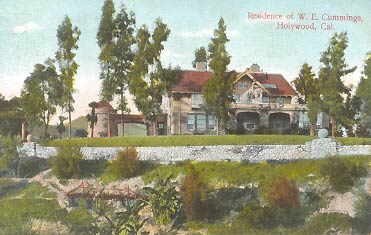 | • We went quite a bit astray one or two times as we tried to find our way back to our main route. We passed some quite impressive houses . . . |
• . . . And some were more modest. "If I were over a hundred years old, I'd be pretty modest, too!", I exclaimed, adding, "That's where the Treaty of Cahuenga was signed." Mother knit her brows, and said, "What kind of a cow was that?—and why did they need to sign a treaty about it?". "Never mind.".
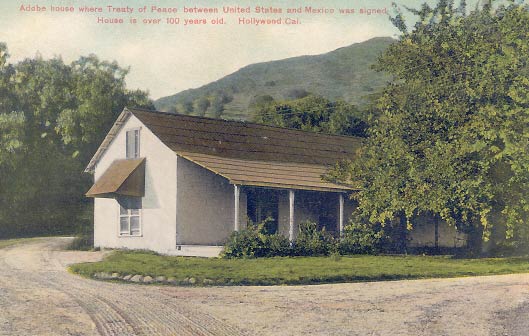
| • We were
getting deeper into the sagebrush and pretty doubtful of our way when the
road led into a little gulch and ended at the camp of these poor people.
Well, they didn't understand much English; but then our query "Santa
Monica?" wasn't English, so with a lot of gesticulation, they pointed
the way to us. I of course had to put my foot in my mouth; and so,
pointing to the fancy clothes they had on, I said, "Fiesta? Bueno?". The
result of this was that tears started flowing out of the ladies' eyes. The
older man, with a sad expression, handed me a little flyer by which, what
with one thing and another, I gathered that their little boy had died and
they were just back from the funeral. Now tears started out of Mother's
eyes. She went over and hugged the ladies; and then all the ladies of both
parties sat together sighing, holding each other's hands, and looking
melancholy for quite some time. Papa, with a grim face, gave each of the
men a condoling pat on the back; but I'm afraid that Charley, young FJ,
and I all just sat in the automobile looking
foolish. | 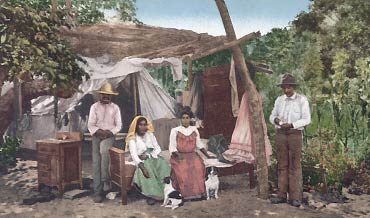 |
• Finally finding the right way to Santa Monica because of the bereaved family's directions, we passed the Solders' Home at Sawtelle. "Do they put the Yankees and Rebs in different buildings?" asked young Frederick Johan, the only one of us who was not drowsy after lunching. Mother said, "I do believe that here they doubtless spend more time together than apart." [Today, the Soldier's Home acreage is occupied—quite properly—by the Veteran's Administration.]
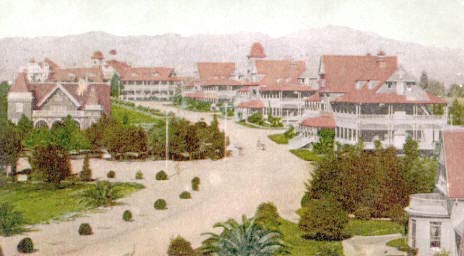
• We pulled up to the band stand and stopped, thinking that perhaps there would be an afternoon concert. An elderly soldier was sitting on the steps smoking a pipe. "Good day to you, old timer!" Papa called out, good naturedly, from the automobile. "You ain't no Spring chicken yourself, mister," the man said, without taking the pipe out of his mouth. "Let me try," said Anna; "it's all in one's tone." She raised her voice, and shouted, "Excuse me, sir—is the band going to play here?" "It's a band stand, ain't it?" Mother sniffed and said, "'Tis time for an expert. Let me out! Let me out!". She alighted from the car, and walked over to the man, who stood up as she approached. Out of our hearing, they exchanged a few sentences and appeared to shake hands, after which Mother returned and sat down in the car with us. "There is no concert today," she announced. "Mrs. S!" Papa bellowed as he started the vehicle, "your powers never cease to amaze me. How did you get him to cooperate?" Mother smiled and said, "I gave him one of your cigars."
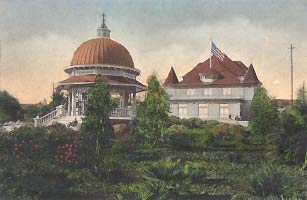
• On our way back to the main road, we passed the hospital of the Soldier's Home. Young Frederick Johan pondered, "I wonder what the ratio of limbs to bodies is in there..." Minnie snorted, "Well, why don't you go in and ask?"; and just then the baby started to cry again. Charley and I looked at each other and, without a word, knew it was time to reveal that Aunt Sigrid had sent along a big box of cookies as a traveling snack; and so we passed them out and everyone's mood improved (though Minnie fussed a little that she was left with the wrenching choice of removing her gloves or "making them crumby").
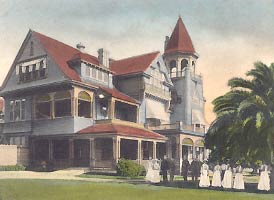
• Our first close-up view of the ocean was attended by Minnie's hat blowing off in a gust of sea-breeze. Quoth she, on returning to the automobile after having retrieved it, "The natural elements are not very mannerly!" There's a sort of ramp or incline that goes down from the top of the cliffs practically to sea-level, taking the road northwards; but this wasn't what we were about. "It would be quicker to jump," said I, as we paused for the view. "Yes," said young Frederick Johan; "but speed is perhaps not the main consideration here." Papa gazed into the distance. "That's the longest, and loneliest, wharf I ever saw!," he exclaimed after a moment. Charley chimed in, "That's 'Port Los Angeles'—impressive, ain't it?—train tracks run the length of the thing, I understand. Few more miles, and they'll reach Hawaii." "Seems like they might want to call in a few ships now and then, just to make it seem on the up-and-up," was Papa's opinion. "Oh," yawned Charley, "the place lost out to San Pedro for that sort of thing, or so I hear." Minnie interjected, "Charley, you're a regular encyclopædia of hearsay." Before Charley could respond with anything more than a heated "And you're...", Mother put her hand on his shoulder and said, "Now, behave, the both of you, or I'll be sending you the quick way down." Anna was pointing out to the baby the waves crashing on shore as Papa took off the brakes and we were on our way again.
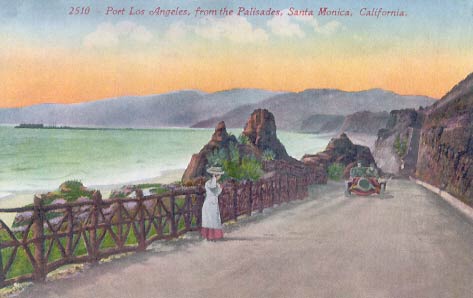
• We didn't linger at Santa Monica, as the day was getting on. But as we passed en route to Venice, we enjoyed the very pretty landscaping at the Santa Monica Southern Pacific station.
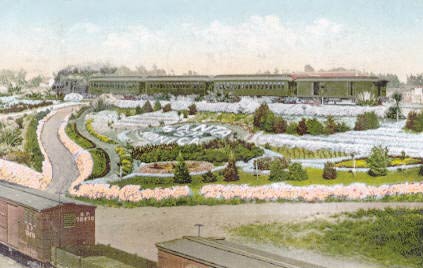
• While on our other side, between us and the ocean, was the grand Arcadia Hotel. Remember the Baker Block on the corner of Main Street and Arcadia Street near the Plaza? Arcadia Street and the Arcadia Hotel were both named after the same Arcadia—the wife of Colonel Baker. In her youth, she had been the wife of a Yankee pioneer in Los Angeles, Abel Stearns, who died in 1866.
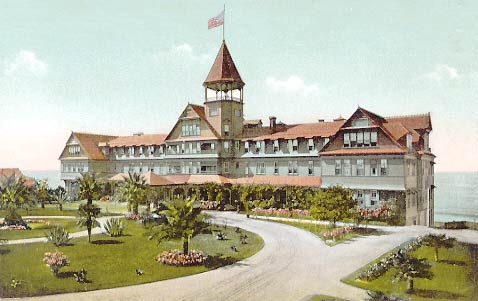
| • "That's the Jones residence," said Charley as we passed a nearby mansion. "Hm!", was Minnie's reaction; "And I suppose the Smith house, and the Brown estate, are coming up as well. Who, pray tell, is the aforestated Jones?" Charley glared at her, which made her say, "Mother, he's making all this up." Mother's enquiring look at Charley brought forth his answer, "He's a senator. And he has something to do with development of this area," which statement he concluded with an emphatic nod of his head. | 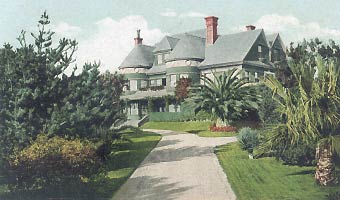 |
• Abruptly, the character of the buildings we were passing changed. "Ah, sunny Italy at last!", cried Minnie.
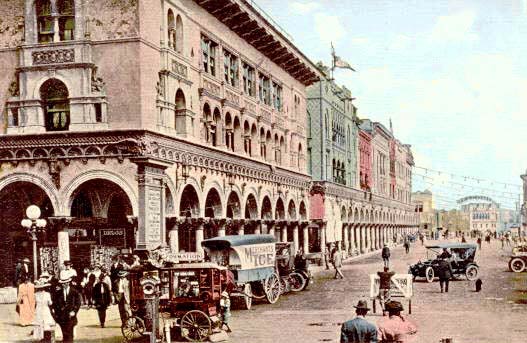
• Minnie's hat had continued blowing left and right, if not downright off, in the increasing sea breezes ever since we started coming down from Lookout Mountain ("It whirleth about continually," as I quoted from the previous Sunday's sermon), and it was all the worse here, as we collected ourselves for a moment in the arcade. ("Colonnade!", corrected young FJ; but I protested, "It hath arches, churl.")
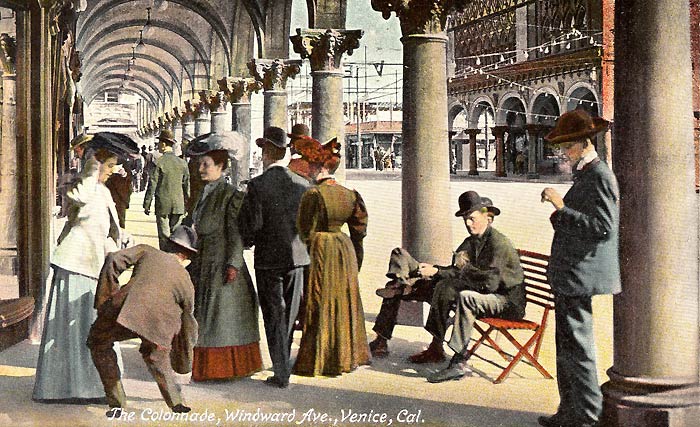
• Charley was anxious to continue irritating Minnie, I think, and so came up with another piece of information. "A gentleman named Abbott Kinney opened this place just about exactly a year ago. He dug out all these canals, for instance." Anna looked a bit perplexed; "Didn't they have enough water around already, with the ocean a few feet away?" "Maybe they like mosquitos," I guessed. "Well," said Papa, looking about, "you must say it surely is deeferent, that it is I guess."
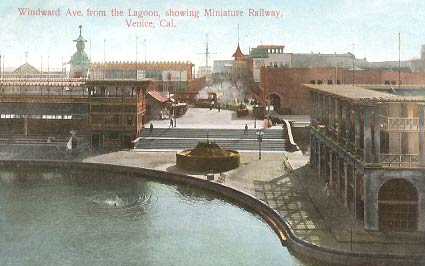
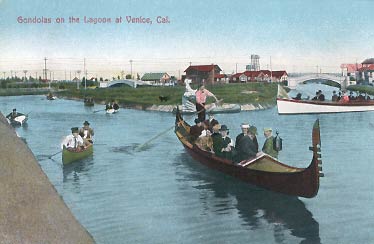 | • Mother wondered "Who are those fellows piking along in the skinny boats? They seem to be in pain!" "I think they're trying to sing," said young Frederick Johan, adding "Those are awfully fancy canoes." Minnie observed that "they're quite muscular—aren't they, Charley?" "They're called 'gandelors'," was Charley's comment. "'Gandelors'?", I queried. "Maybe, 'golateers'," was Charley's second try. Another questioning look from me engendered some more terms. "'Golondrinos'. 'Gandayeros'. 'Glockensp— " Minnie had had enough. "Oh, Charley, why not just say something like … like … 'Cantaloupes,' and be done with it?". |
• We walked a block or so towards the beach; the band was playing, and doing so "very loudly," as Mother pointed out. Minnie was quick to state, "Perhaps they're trying to drown out the Cantaloupes." Charley just sighed to himself.
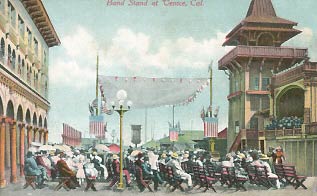
• People were piling into an amphitheater. "I wonder what's playing...?", Anna pondered. Mother snorted, "Doubtless, some frivolous thing with skimpily-clad performers." In chorus, Charley and Minnie cried, "Let's go!"; but Mother and Papa herded us off to an ice-cream stand, where Papa treated us all. The baby got to sample each flavor we got; he seemed to decidedly prefer my Tutti-Frutti.
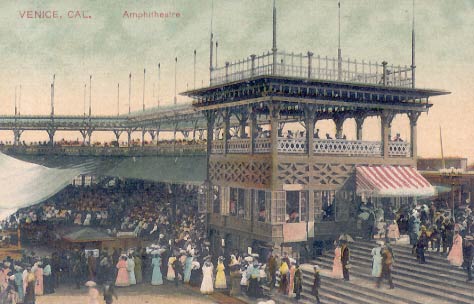
• From water's edge, we could see the pier of another beach town, Ocean Park, in the distance.
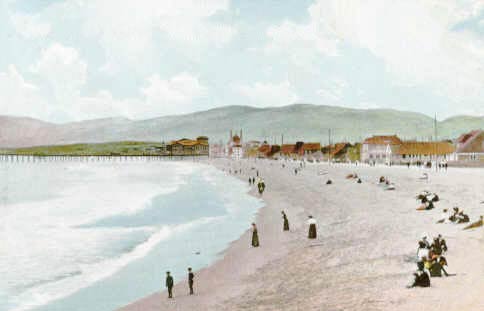
• It's hard to say if we were more astonished by the vast expanse of ocean on the one hand, or by the fanciful buildings on the other. Mother at length broke the silence by pointing out to Minnie the "House of Mirth" (at the right of our view), and noting that there was something she at least would find to be familiar. Papa thought for a moment and then said, "I think some of us are familiar enough with the House of Mourning." Anna took it up by mentioning that to every thing there is a season; and young Frederick Johan expressed his wish that the time would come to "cast away stones." Me, I regretted aloud that I had left my Sunday School book at home.
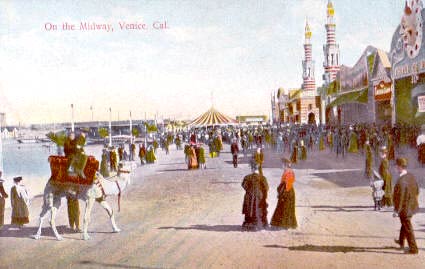
• The shadows had lengthened; night was falling—which only added to the excitement and attraction.
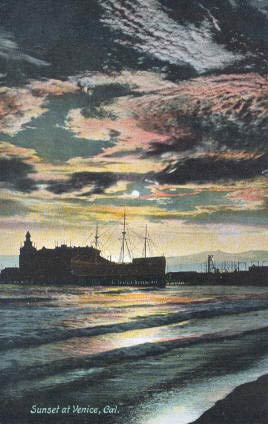
• A million booths of games, oddities, entertainments, and souvenirs!—and a million and a half odd and entertaining people going about looking at them. Bit by bit, even Mother acquired a festive mood; and we succeeded in encouraging her and Papa to go on a little roller-coaster together through the gay lights and happy darkness there.
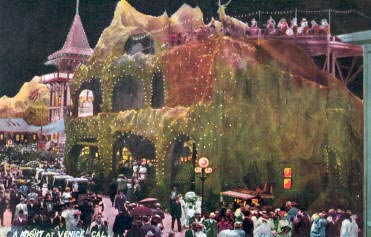
• What fun! A fresh night, sounds of amusements and amused people all around us, delicious smells of delicious foods from the booths and restaurants, everyone in a carefree mood...
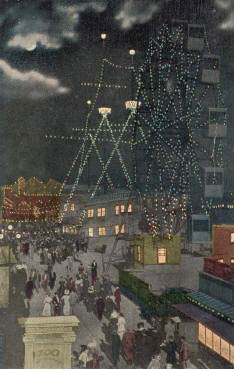
• We all tired at about the same time; and after resting on a bench and quietly enjoying the lights, we dragged ourselves back to the glorified hay-wagon. Papa and Charley traded off driving back to Aunt Sigrid's as the rest of us napped, our dreams full of the wonders of the day.
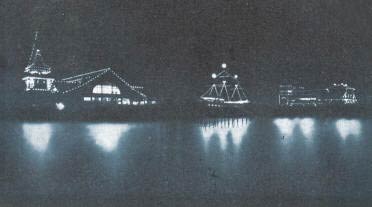
Return
to Los Angeles' Parks; or on
to Ocean Park, Redondo Beach, and the Oilfields
. . .